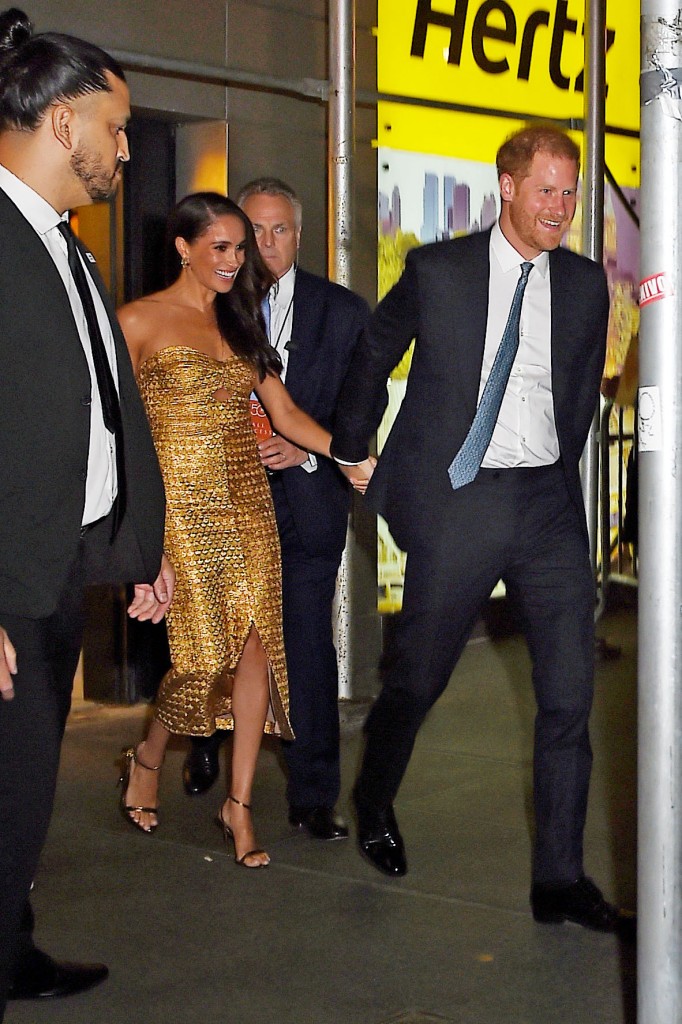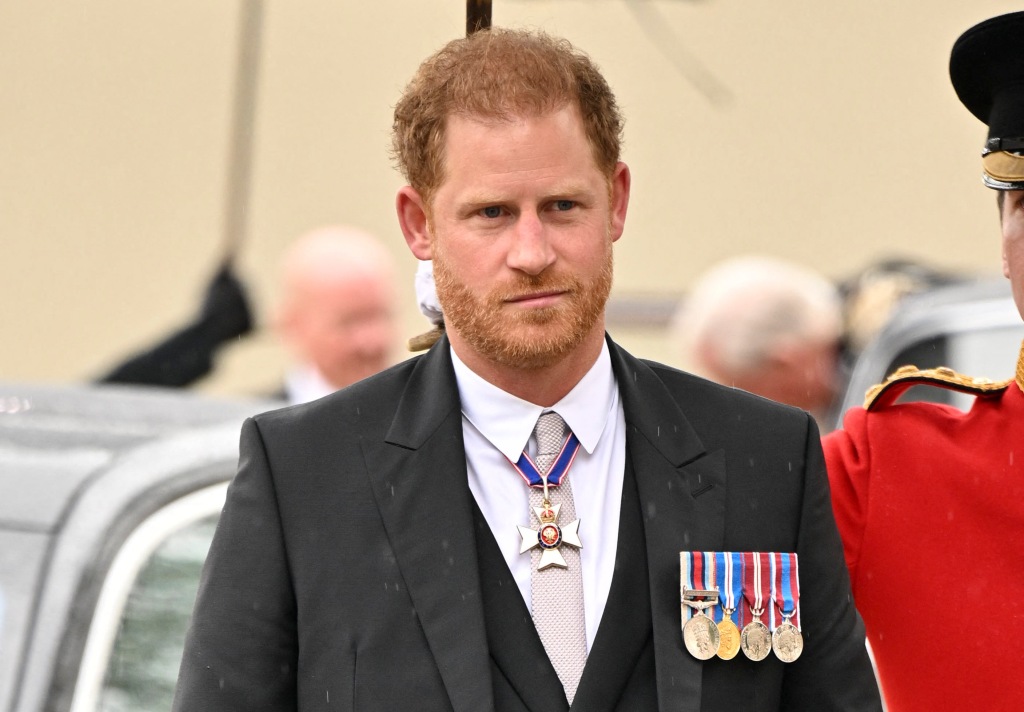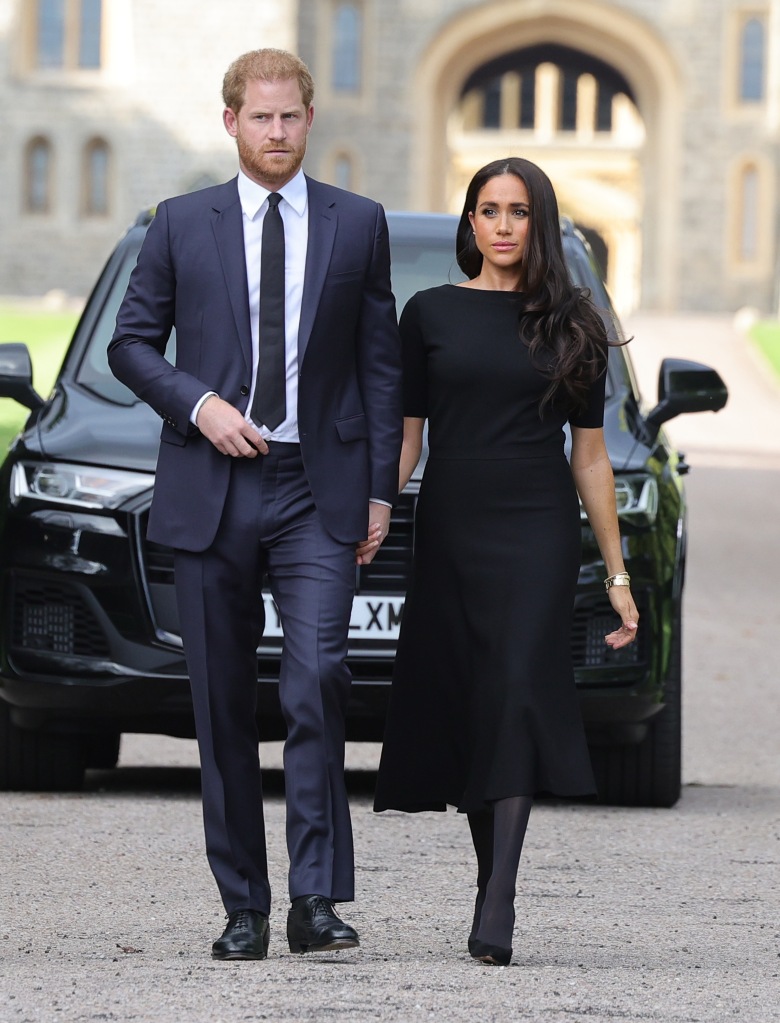Prince Harry loses bid to pay for police protection in UK
Prince Harry on Tuesday lost a legal bid to challenge the British government’s decision barring him from paying for police protection during his visits to the UK.
The Duke of Sussex, 38, and his wife, Meghan Markle, 41, were stripped of taxpayer-funded police protection after they stepped back from being “working royals” and moved to the US in 2020.
Harry’s lawyers had sought a judicial review of the government’s refusal of his offer to hire police officers as his private security detail. But London’s High Court ruled Tuesday to deny the review.
The decision to remove publicly-funded security was made by the Executive Committee for the Protection of Royalty and Public Figures, known as RAVEC.
Last week, Prince Harry’s lawyers argued during a one-day hearing that RAVEC did not have the authority to reject his offer to pay police for security — and even if it did, it was wrong not to consider an exception, or hear his challenge.
“Parliament has clearly decided that in principle, payment for policing is not inconsistent with the public interest,” Harry’s lawyers wrote.
Home Office lawyers had opposed the move, arguing that it would be wrong to allow wealthy people to “buy” highly trained officers as private bodyguards, who are expected to put themselves in harm’s way.
Attorneys for the government pointed out that the committee had already concluded that letting private individuals pay for police protection was not in the public’s or state’s interest.

They contended that allowing a wealthy person to use police officers as private bodyguards was very different than paying for policing at a soccer match, a marathon, or even a celebrity’s wedding.
In his written ruling, Judge Martin Chamberlain sided with the Home Office, concluding that RAVEC had not been wrong to decide that allowing payment for protective security was against the public interest.
The Sussexes have been paying for US security guards over the past three years, but a representative of the family said that the American detail does not have jurisdiction overseas or access to intelligence in the UK.
Harry — who traveled solo to the UK earlier this month to attend the coronation of his father King Charles III — has said that he is “gravely concerned about his safety and security during future trips” to his homeland and feels unsafe bringing along his children, 4-year-old Archie and Lilibet, who turns 2 next month.

Last year, Britain’s former counter-terrorism police chief said there had been credible threats made against Harry and Meghan by far-right extremists.
The last time Harry and Meghan traveled to the UK together was for his grandmother Queen Elizabeth II’s funeral in September.
The court decision comes less than a week after Harry’s spokesperson said the prince, his wife and her mother, Doria Ragland, were involved in a “near catastrophic” car chase with paparazzi after an awards ceremony in New York City.
The prince has been vocal about his fears for the safety of his family and regularly hit out at press intrusion, which he blames for the death of his mother, Princess Diana, who was killed when her limousine crashed as it sped away from chasing paparazzi in Paris in 1997.
Harry, who lives with his family in California, is currently pursuing six cases at the High Court in London involving security and privacy claims. His lawyers are also involved in a trial where he and others are suing Mirror Group Newspapers over allegations of phone-hacking.

Harry is separately suing the publisher of the Mail on Sunday newspaper for libel over an article that alleged he only offered to pay for police protection after the start of his legal case against the British government.
With Post wires
Read the full article Here


